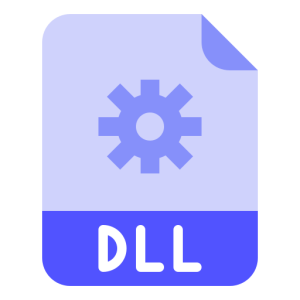Description
OPENGL32.DLL is a dynamic link library (DLL) file that is an integral part of the OpenGL (Open Graphics Library) infrastructure on the Windows operating system. It provides the necessary functions and resources for applications to interface and utilize the capabilities of the OpenGL graphics rendering system. The DLL acts as a bridge between software applications and the underlying hardware, enabling the rendering of 2D and 3D graphics with hardware acceleration.
This library is crucial for the proper execution and functioning of applications that leverage the OpenGL API for rendering graphics. It contains a collection of functions, routines, and resources that enable the creation and manipulation of OpenGL contexts, the rendering of graphics primitives, and the management of graphical assets such as textures and shaders.
OPENGL32.DLL plays a central role in facilitating the development and execution of graphics-intensive software applications, including computer games, CAD (Computer-Aided Design) software, scientific visualization tools, and many other graphics-related applications.
Purpose and Functionality
OPENGL32.DLL provides a comprehensive set of functionality and resources to support the rendering of high-quality graphics on a Windows operating system. Its primary functions include:
- Graphics Rendering: The DLL enables the creation and manipulation of OpenGL contexts, which serve as an interface between applications and the graphics hardware. It provides functions for rendering 2D and 3D primitives, applying transformations, and managing the rendering pipeline.
- Shader Compilation: OPENGL32.DLL includes functions for compiling and linking shaders, which are essential components of modern graphics rendering. Shaders allow developers to program custom graphics effects and techniques, such as lighting, shadows, and advanced material rendering.
- Texture Management: The DLL provides functions for loading, manipulating, and mapping textures onto geometries. Textures enhance the visual quality of rendered objects by applying images or patterns onto their surfaces.
- Hardware Acceleration: OPENGL32.DLL leverages the capabilities of the underlying graphics hardware to perform graphics rendering operations efficiently. It taps into the GPU (Graphics Processing Unit) to offload computationally intensive tasks and provide real-time rendering performance.
Common Use Cases
OPENGL32.DLL is widely used by software applications that require high-performance graphics rendering using the OpenGL API. Some common scenarios where this DLL is utilized include:
- Game Development: Game developers utilize OPENGL32.DLL to create immersive and visually stunning 2D and 3D games. The DLL provides the necessary tools and functionality to render graphics in real-time, handle user input, and manage game resources.
- Scientific Visualization: Applications in fields such as geoscience, medical imaging, and engineering often rely on OPENGL32.DLL to visualize complex data sets. The high-performance graphics capabilities of OpenGL enable the representation and analysis of large-scale scientific data efficiently.
- Graphics Design: Professionals in fields such as computer-aided design and 3D modeling utilize OPENGL32.DLL to create and manipulate intricate graphical designs. The DLL provides the necessary functionality to render realistic models, apply textures and materials, and simulate lighting conditions.

